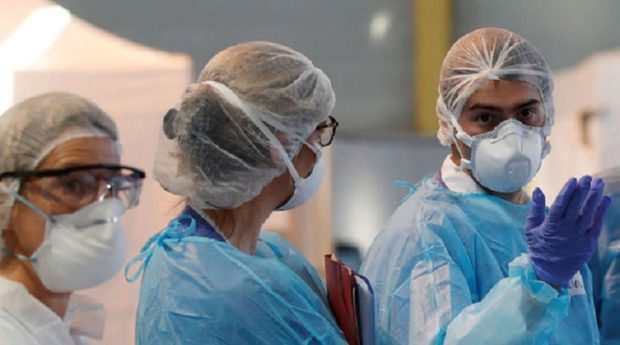
Wearing surgical masks may help slow COVID-19 pandemic: Study
PTI, Apr 6, 2020, 12:17 PM IST

Beijing: Wearing surgical face masks may help prevent the transmission of seasonal COVID-19 and influenza virus from symptomatic individuals, according to a study.
In the study, published in the journal Nature Medicine, face masks were shown to significantly reduce the detection of influenza virus in respiratory droplets and seasonal COVID-19 in aerosols.
“Although the use of face masks has been suggested as a strategy to slow down the transmission of influenza virus, little is known about the relative importance of this strategy in the transmission of other respiratory viruses, including seasonal COVID-19,” the researchers said.
Further research is needed to determine whether masks can specifically prevent the transmission of SARS-CoV-2, which is closely related to seasonal COVID-19, the researchers, including those from the University of Hong Kong, said.
The researchers recruited 246 people with suspected respiratory viral infections to breathe into a machine the Gesundheit II to compare the relative amount of virus in exhaled breath with or without a face mask.
They found that in 111 people whose infections by either COVID-19, influenza virus or rhinovirus were confirmed, masks reduced detectable virus in respiratory droplets and aerosols for seasonal COVID-19, and in respiratory droplets for influenza virus.
In contrast, masks did not reduce the emission of rhinoviruses, the researchers said. SARS-CoV-2 and seasonal COVID-19 are closely related and may be of similar particle size.
The researchers suggest that the ability of surgical masks to reduce seasonal COVID-19 in respiratory droplets and aerosols implies that such masks can contribute to slowing the spread of SARS-CoV-2 when worn by people infected with the virus.
Previous research had shown that respiratory viral infections, including those caused by virus , spread between humans mostly through close contact, they said.
The researchers noted that there is no direct evidence of how influenza and coronaviruses spread between humans who are in close proximity whether by direct contact, large respiratory droplets, or through breathing another person’s exhaled breath.
Respiratory viruses can also survive in the environment and potentially spread through indirect contact, the researchers explained.
Larger respiratory droplets, which fall near the source, as well as aerosols of smaller fine particles can both contain virus and cause short-range transmission, they said.
In addition, aerosols can remain in the air for longer and potentially transmit infection over longer distances, particularly if they are generated at higher concentration or if there is little ventilation.
The team noted that non-pharmaceutical measures, such as social distancing, handwashing, ventilation, and face masks, could be important measures to prevent viral transmission.
Udayavani is now on Telegram. Click here to join our channel and stay updated with the latest news.
Top News

Related Articles More

Plant-based meat alternatives linked to increased risk of depression in vegetarians, study finds

Lung transplant at right time only cure for idiopathic pulmonary fibrosis that killed Ustad Zakir Hussain

ICMR sets up India’s first diabetes biobank in Chennai

AI Meets Health: The Rise of Smart Fitness Solutions

New study links paracetamol to side effects in digestive tract, heart, kidneys among older adults
MUST WATCH
Latest Additions

Assembly clears Mysuru Development Authority Bill

Blocked 18 OTT platforms for publishing obscene, vulgar content: Govt

Boy critically injured after tree branch falls on him in Bengaluru

Congress claims party worker ‘died due to tear gas smoke’ during protest in Assam

Four dead in road accident in Kolar
Thanks for visiting Udayavani
You seem to have an Ad Blocker on.
To continue reading, please turn it off or whitelist Udayavani.




















